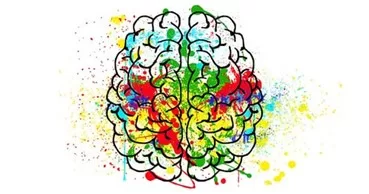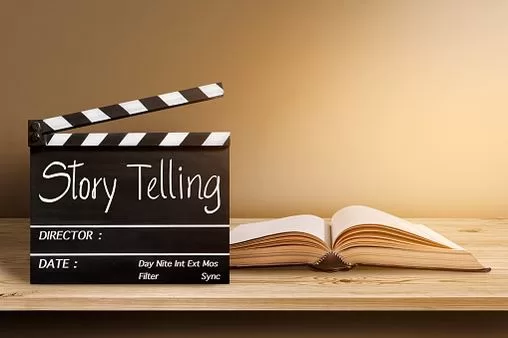Thanks for visiting our blog about psychology books! Here, we take a look at some of the greatest and most influential psychology books ever written through the lens of the fascinating topic of human behaviour and emotions.
The study of psychology covers a wide range of topics, including social influence, interpersonal relationships, mental health, and cognitive processes. We can better understand ourselves and others and discover more about the intricate and frequently enigmatic workings of the human mind by reading psychology books.
Based on their applicability, accessibility, and impact, we will share our top picks for the best psychology books in this blog. These books are certain to enthral and inform you whether you are interested in psychology, a student, or simply someone who wants to learn more about human behaviour.
So come along with us as we embark on this exploration and discovery journey as we delve into the fascinating field of psychology through the pages of some of the most perceptive and stimulating books ever produced!
“Thinking, Fast and Slow” by Daniel Kahneman


“Thinking, Fast and Slow” is a groundbreaking book written by Nobel Prize-winning psychologist Daniel Kahneman. It offers a fascinating and accessible overview of the human mind, exploring how we think and make decisions.
The book is based on the idea that there are two modes of thinking: System 1 and System 2. System 1 is fast, intuitive, and automatic, while System 2 is slower, more deliberate, and analytical. According to Kahneman, our minds rely heavily on System 1 thinking, which can lead to cognitive biases and errors in judgment.
Throughout the book, Kahneman explores various topics such as heuristics, prospect theory, and loss aversion. He also examines how our emotions and social context influence our decision-making processes. The book is filled with real-life examples and experiments that illustrate the concepts and theories presented.
“Thinking, Fast and Slow” is a must-read for anyone interested in psychology, cognitive science, or decision-making. It provides valuable insights into the complex workings of the human mind and offers practical advice for avoiding common errors in judgment. The book is written in an engaging and accessible style, making it suitable for both academic and general readers.
“Influence: The Psychology of Persuasion” by Robert Cialdini


“Influence: The Psychology of Persuasion” by Robert Cialdini is a classic book on the psychology of influence and persuasion. Cialdini explores the six universal principles of influence: reciprocity, consistency, social proof, liking, authority, and scarcity.
Through numerous examples and experiments, Cialdini shows how these principles are used in various contexts, from sales and marketing to politics and social influence. He also examines how these principles can be used ethically or unethically, and how we can protect ourselves from unwanted persuasion attempts.
Overall, “Influence” provides a comprehensive and engaging overview of the psychology of persuasion and the techniques used to influence our decisions and behaviors. The book is suitable for both academic and general readers and offers practical advice for anyone looking to improve their ability to persuade or resist persuasion.
“Man’s Search for Meaning” by Viktor E. Frankl


Have you ever stopped to wonder what the meaning of life is? Viktor E. Frankl, a psychiatrist who survived the Holocaust, explores this question in his book “Man’s Search for Meaning.”
Frankl talks about his own personal experiences in World War II’s concentration camps, where he saw some of the worst things. However, he discovered that people can still find meaning and purpose in their lives despite these terrible circumstances.
The way Frankl talked about finding meaning in everyday things like our work, relationships, and struggles was really interesting to me in the book. He accepts that even our difficulties can be open doors for development and satisfaction. Frankl also looks at the ways in which going through trying times can help us become stronger and more resilient.
“Man’s Quest for Signifying” is a strong and motivating book that has contacted the existences of millions of individuals. It serves as a reminder that we can persevere even when life seems hopeless. It is a message of perseverance and hope from which we can all benefit.
“The Power of Now” by Eckhart Tolle


Have you ever felt like you’re not living in the moment? Like your mind is constantly preoccupied with thoughts of the past or worries about the future? If so, you might be interested in reading “The Power of Now” by Eckhart Tolle.
The book by Eckhart Tolle is all about the transformative power of living in the present. He contends that a lot of us are ensnared in our own emotions and thoughts, which prevents us from truly experiencing life to its fullest. We can break free from these thought patterns and experience greater happiness and peace in our lives by learning to be more aware of the present moment.
Tolle gives readers practical advice and exercises throughout the book to help them develop this awareness and live more in the now. He likewise investigates how our connection to material belongings and economic well-being can keep us from being really cheerful.
“The Power of Now” is an insightful and inspiring book that has helped countless people find greater peace and fulfillment in their lives. It offers a powerful message of hope and transformation, reminding us all of the importance of being present in the moment.
“Flow: The Psychology of Optimal Experience” by Mihaly Csikszentmihalyi


“Flow: The Psychology of Optimal Experience” by Mihaly Csikszentmihalyi is a seminal work on the concept of flow, a state of heightened focus and immersion that can lead to peak performance and deep satisfaction.
Csikszentmihalyi explores the conditions and characteristics of flow and how it can be achieved in various domains of life, from work and sports to art and music. He also examines the benefits of flow, including increased creativity, productivity, and happiness, and how it can help us achieve our goals and lead fulfilling lives.
Throughout the book, Csikszentmihalyi draws on numerous examples and studies to illustrate his points and provides practical guidance for readers looking to cultivate flow in their own lives. He also explores the challenges and obstacles to flow, including boredom, anxiety, and distraction, and offers strategies for overcoming them.
“Flow” is a fascinating and inspiring book that has influenced many fields, from psychology and education to business and sports. It offers a powerful message about the importance of engaging in activities that bring us joy and fulfillment, and the transformative power of focused attention and immersion.
“The Social Animal” by David Brooks


“The Social Animal” by David Brooks is a captivating and thought-provoking book that takes a multidisciplinary approach to exploring the complexities of human behavior and the social forces that shape our lives. Brooks skillfully weaves together insights from psychology, neuroscience, and sociology to tell the story of Harold and Erica, two fictional characters whose lives provide a window into the various social and psychological factors that influence our decisions and behaviors.
Brooks explores a variety of subjects, including, for example, relationship value, personality development, and emotional intelligence. He emphasizes the significance of social ties and connections in determining our views and values as well as our capacity to flourish in challenging social contexts throughout the whole book. He draws on research from a variety of disciplines to present evidence-based solutions for personal growth and development, and he provides helpful recommendations for fostering emotional resilience and improving our social skills.
Overall, “The Social Animal” is a highly engaging and informative book that offers valuable insights into the complexities of human behavior and the social forces that shape our lives. It is a must-read for anyone interested in better understanding themselves and their place in the world. Whether you are an academic or a general reader, this book is sure to provide a fresh and compelling perspective on the human experience.
“Stumbling on Happiness” by Daniel Gilbert


“Stumbling on Happiness” by Daniel Gilbert is a thought-provoking book that challenges our assumptions about what makes us happy and how we can achieve it.
Gilbert contends that while being able to envisage and foresee the future is a valuable skill, it may also cause us to make erroneous predictions about what would ultimately bring us happiness. He examines the many cognitive biases and blind spots that may affect the way we perceive happiness and provides advice on how to get over them.
Gilbert uses evidence from the fields of psychology, neurology, and economics to support his arguments throughout the book. He also offers readers who want to cultivate more happiness in their life useful advice. He also looks at how societal and cultural variables affect our level of happiness as well as how our relationships, jobs, and leisure pursuits may all improve our general well-being.
“Stumbling on Happiness” is a fascinating and accessible book that has influenced many fields, from psychology and business to self-help and personal development. It offers a powerful message about the importance of questioning our assumptions and cultivating a more realistic and nuanced understanding of what makes us truly happy.
“Quiet: The Power of Introverts in a World That Can’t Stop Talking” by Susan Cain


“Quiet: The Power of Introverts in a World That Can’t Stop Talking” by Susan Cain is a compelling book that challenges the assumptions and stereotypes surrounding introversion and extroversion.
Cain argues that introversion is a valuable and often misunderstood trait and that it has been undervalued in our society which tends to celebrate extroversion and outgoing personalities. She draws on research from psychology, neuroscience, and social science to explore the unique strengths and challenges of introverts, and provides practical guidance for introverts and extroverts alike on how to thrive in different social and work settings.
Throughout the book, Cain shares numerous examples and stories of introverts who have made significant contributions to society, from scientists and artists to business leaders and activists. She also explores the challenges that introverts face in a culture that values assertiveness and social skills and offers strategies for overcoming these challenges and embracing their natural strengths.
“Quiet” is a thought-provoking and inspiring book that has sparked a broader conversation about introversion and the importance of valuing diverse personalities and work styles. It offers valuable insights for anyone looking to better understand themselves and others and to create a more inclusive and supportive environment for people of all personalities.
“The Body Keeps the Score” by Bessel van der Kolk


Bessel Van Der Kolk’s book “The Body Keeps the Score” offers light on how trauma impacts our bodies and brains, as well as insights on the route to healing and recovery.
Van Der Kolk studies how trauma affects our brain, body, and behaviour using his decades of experience as a doctor and researcher. He gives an in-depth account of the most recent research on trauma and its effects, including how it can cause a variety of physical and mental health issues, such as chronic pain, exhaustion, worry, and despair.
Van Der Kolk shows how psychotherapy, mindfulness, and body-centered treatments like yoga and meditation can be used to help people heal from trauma by using personal stories and case studies. He emphasizes the significance of integrative and holistic trauma therapy, which takes into account the connection between the mind, body, and spirit.
“The Body Keeps the Score” is an eye-opening book that gives essential insight to trauma survivors, as well as healthcare professionals and anybody interested in the nuances of trauma and healing. It is a must-read for anybody interested in learning more about the consequences of trauma on the body and mind, as well as the path to healing.
“The 7 Habits of Highly Effective People” by Stephen Covey


“The 7 Habits of Highly Effective People” by Stephen Covey is a classic self-help book that offers practical insights and strategies for achieving personal and professional success.
Covey presents a holistic approach to personal growth and development, based on seven key habits that he identifies as essential for success. These habits include being proactive, beginning with the end in mind, putting first things first, thinking win-win, seeking first to understand, then to be understood, synergizing, and sharpening the saw.
Throughout the book, Covey emphasizes the importance of developing a proactive mindset and taking responsibility for one’s own life and choices. He also stresses the importance of cultivating strong relationships, both personally and professionally, and of aligning one’s actions with one’s values and goals.
Covey’s approach is grounded in principles of effectiveness, rather than quick fixes or superficial solutions. He provides practical guidance for developing habits that can help individuals to achieve success in all areas of their lives, from personal relationships and family life to work and career.
“The 7 Habits of Highly Effective People” has been praised for its timeless wisdom and practicality, and has become a classic in the field of personal development. It is a must-read for anyone looking to improve their effectiveness, achieve their goals, and lead a fulfilling life.
In conclusion, reading psychology books can be a great way to gain insights into human behavior, psychology, and experience. Whether you are looking to improve your own life or gain a better understanding of others, these books offer valuable perspectives and practical strategies for personal and professional growth. In this blog, we have explored some of the best psychology books. Each of these books offers unique insights and perspectives on various aspects of human psychology, behavior, and experience. By reading these books, you can gain a better understanding of yourself and others, and develop practical strategies for personal and professional growth. So, pick up a book and start exploring the fascinating world of psychology!
We put a lot of effort into putting up this blog article. Yet there’s always something that needs improvement. If you find anything erroneous or misleading, please let us know; we’ll happily include your feedback. Your feedback helps us to improve and ensures that we provide the best reading experience for all our readers.













